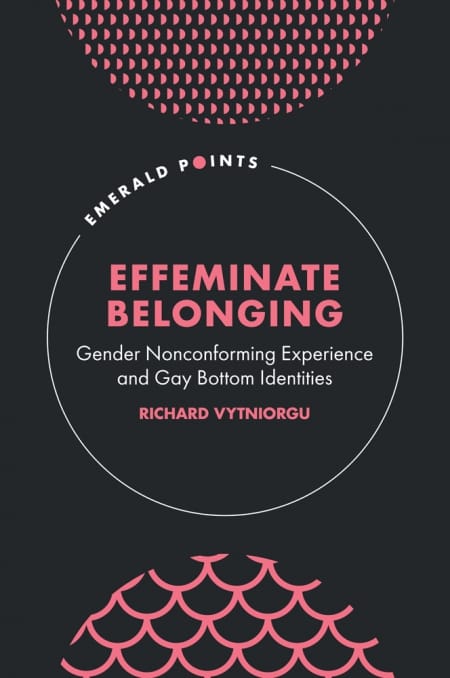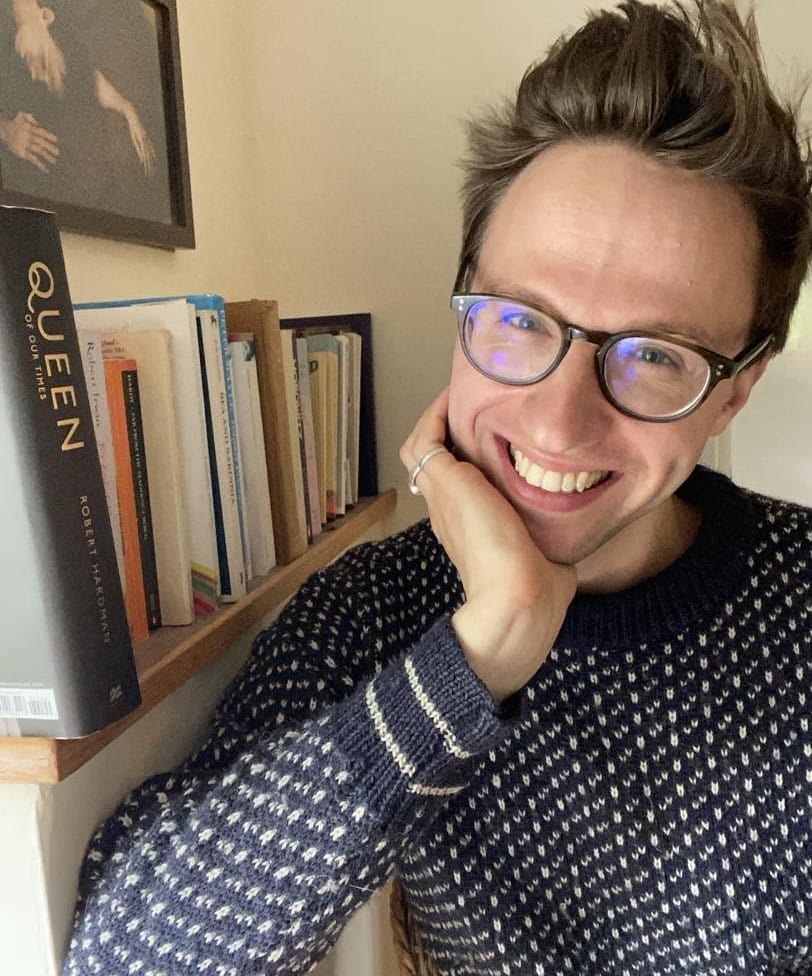Effeminate Belonging: How does our gender expression connect with our sexuality?
Richard Vytniorgu explores the power of identifying as a Bottom.

The latest publication from Richard Vytniorgu explores what it means for queer men to identify as bottoms and how that connects to our gender expression.
The book is Effeminate Belonging: Gender Nonconforming Experience and Gay Bottom Identities.
Vytniorgu - a Research Fellow at the University of Hertfordshire - describes how effeminate gay men, and fem bottoms in particular, have increasingly become the ‘marginalised among the marginalised’ in Anglo-American gay culture, which tends to place a premium on appearing, behaving, and sounding masculine.
Effeminate Belonging compares how boys and men in Western and global majority contexts negotiate connections between homosexuality, effeminacy, and bottom identity and practice, and why conversations that re-connect sex role positionality and gender expression are important to gay men’s sexual wellbeing and sense of belonging.
Providing new readings of autobiographical narratives in film, documentary, social media, gay porn, and written erotica, Richard Vytniorgu explores how fem bottoms negotiate gender nonconforming experience and bottom identities in different places and spaces, including in the home, school, within the queer community, online, and in their own bodies.
Consolidating key research on effeminacy and gay bottom identities in the humanities, social sciences, and sciences, this interdisciplinary, cross-cultural, and historical discussion of gay men’s sexual and gendered identities offers new insights for readers interested in gender nonconformity, bottoming, and male homosexuality across cultures.

Richard Vytniorgu on How To Date Men
Richard Vytniorgu recently joined us as a guest on our podcast, How To Date Men.
In the conversation, we talk about the importance of belonging, the complexity of identity, and the cultural impact of gender expression.
As mentioned in the podcast, Richard is still looking for LGBT+ people aged 40+ living in Britain to be interviewed about their positive and negative experiences of place, community, and exclusion in their lives. For more info, please email him at r.vytniorgu@herts.ac.uk, or visit the project website for more details: www.includeage.co.uk.
